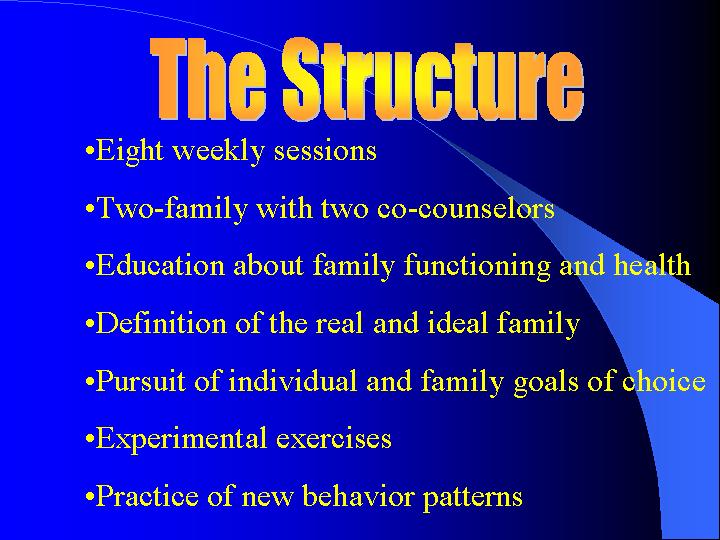Marie-Luise Friedemann, RN, PhD
The Congruence Model is a brief therapy model based on the Framework of Systemic Organization for families who have a member in substance abuse treatment. The goal is to strengthen the family and get it ready to receive the rehabilitated member back into the family. Consequently, the goal is family health.

The treatment approach uses education about family functioning and health, experiential exercises and discussions. Members of two families are included to facilitate working toward the future with mutual support. The aim is to gain understanding of the present family, to develop an optimal family and to work for change toward the optimum.

Each family sets a goal based on a self-assessment to strengthen one of the process dimensions. Each individual sets a personal goal to improve individual health. Progress toward these goals is discussed in each session. Homework is given to help in the process.

The effectiveness of family functioning and family satisfaction are measured with standardized instruments before treatment and at the conclusion. Initial scores are recorded in a graph and shared with the families. Differences between perceptions of family members are topics for discussion.


ASF-E Assessment of Strategies in Families (Friedemann, 1991)
Family Apgar
The Manual "Enhancing Families with the Congruence Model: A Counseling/Education Approach" includes a step-by-step description of the therapeutic process, the content of all sessions, the assessment instruments with scoring instructions and the treatment record forms. The manual is available from the author.
This model has been tested successfully with families from the inner city of Detroit.
Results of the evaluation study are available. (Friedemann, 1994)